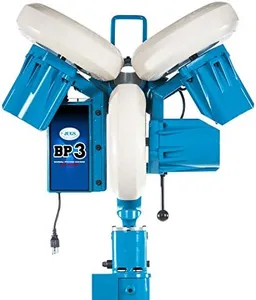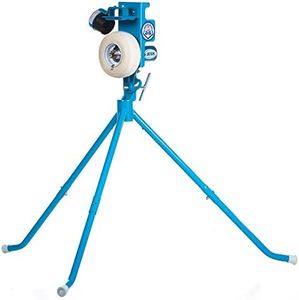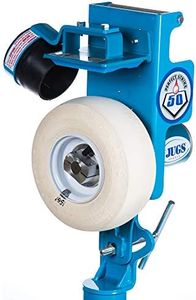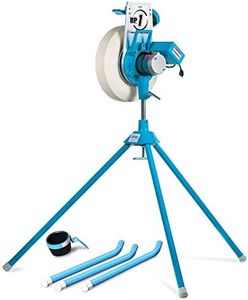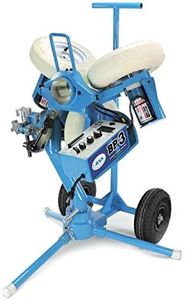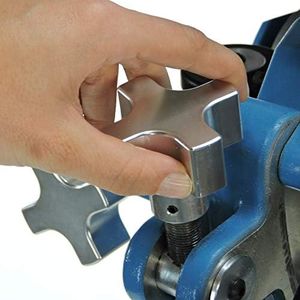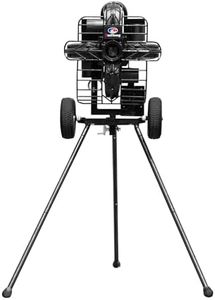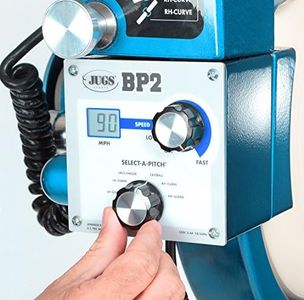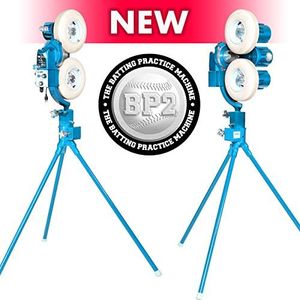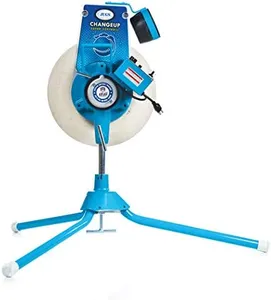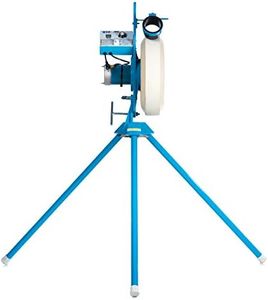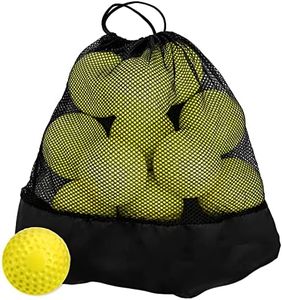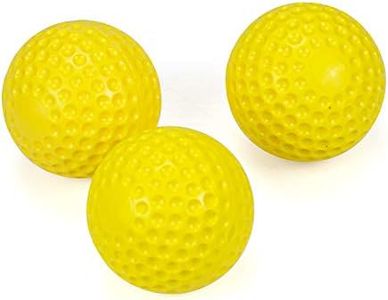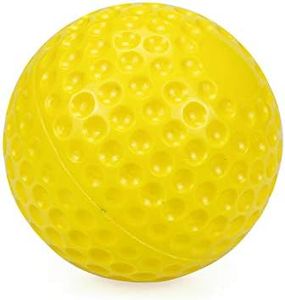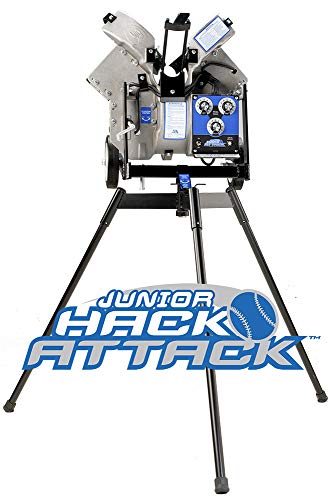10 Best Jugs Pitching Machines 2025 in the United States
Winner
Jugs BP1 Baseball Only Pitching Machine — Throws Baseballs up to 70 mph from a Realistic delivery Height.
The Jugs BP1 Baseball Only Pitching Machine is a versatile and powerful option for baseball training. It can throw pitches at speeds up to 70 mph, which can be precisely controlled through a digital readout display. This makes it suitable for players of various skill levels who need to practice at different speeds. The machine is also highly portable, weighing 75 lbs and easily disassembled to fit in the trunk of a car, making transportation and setup straightforward.
Most important from
13 reviews
Jugs BP3 Baseball Pitching Machine with Changeup - State of The Art 3 Wheel Pitching Machine, 40-90 mph Pitch Speeds, Realistic 64” Delivery Height, Throws 9 Pitches at The Turn of a Dial
The Jugs BP3 Baseball Pitching Machine with Changeup offers a versatile and advanced experience for baseball training. It has a wide pitch speed range from 40 to 90 mph, catering to various skill levels. The machine is capable of throwing nine different pitch types, including fastballs, changeups, curveballs, sliders, cutters, and split-finger fastballs, which adds to its practical use in training different batting techniques.
Most important from
10 reviews
Top 10 Best Jugs Pitching Machines 2025 in the United States
Winner
9.8 score
Jugs BP1 Baseball Only Pitching Machine — Throws Baseballs up to 70 mph from a Realistic delivery Height.
Jugs BP1 Baseball Only Pitching Machine — Throws Baseballs up to 70 mph from a Realistic delivery Height.
Chosen by 1138 this week
Jugs BP3 Baseball Pitching Machine with Changeup - State of The Art 3 Wheel Pitching Machine, 40-90 mph Pitch Speeds, Realistic 64” Delivery Height, Throws 9 Pitches at The Turn of a Dial
Jugs BP3 Baseball Pitching Machine with Changeup - State of The Art 3 Wheel Pitching Machine, 40-90 mph Pitch Speeds, Realistic 64” Delivery Height, Throws 9 Pitches at The Turn of a Dial
Jugs BP1 Baseball/Softball Combo Pitching Machine — Throws Baseballs or softballs up to 70 mph. Set up for Baseball or Softball, This Machine Throws from a Realistic delivery Height.
Jugs BP1 Baseball/Softball Combo Pitching Machine — Throws Baseballs or softballs up to 70 mph. Set up for Baseball or Softball, This Machine Throws from a Realistic delivery Height.
Jugs BP3 Softball Pitching Machine with Changeup - State of The Art 3 Wheel Pitching Machine, 45-75 mph Pitch Speeds, Realistic Delivery Height, Throws 8 Pitches at The Turn of a Dial
Jugs BP3 Softball Pitching Machine with Changeup - State of The Art 3 Wheel Pitching Machine, 45-75 mph Pitch Speeds, Realistic Delivery Height, Throws 8 Pitches at The Turn of a Dial
Jugs BP1 Softball Only Pitching Machine (Without Cart)
Jugs BP1 Softball Only Pitching Machine (Without Cart)
Our technology thoroughly searches through the online shopping world, reviewing hundreds of sites. We then process and analyze this information, updating in real-time to bring you the latest top-rated products. This way, you always get the best and most current options available.


